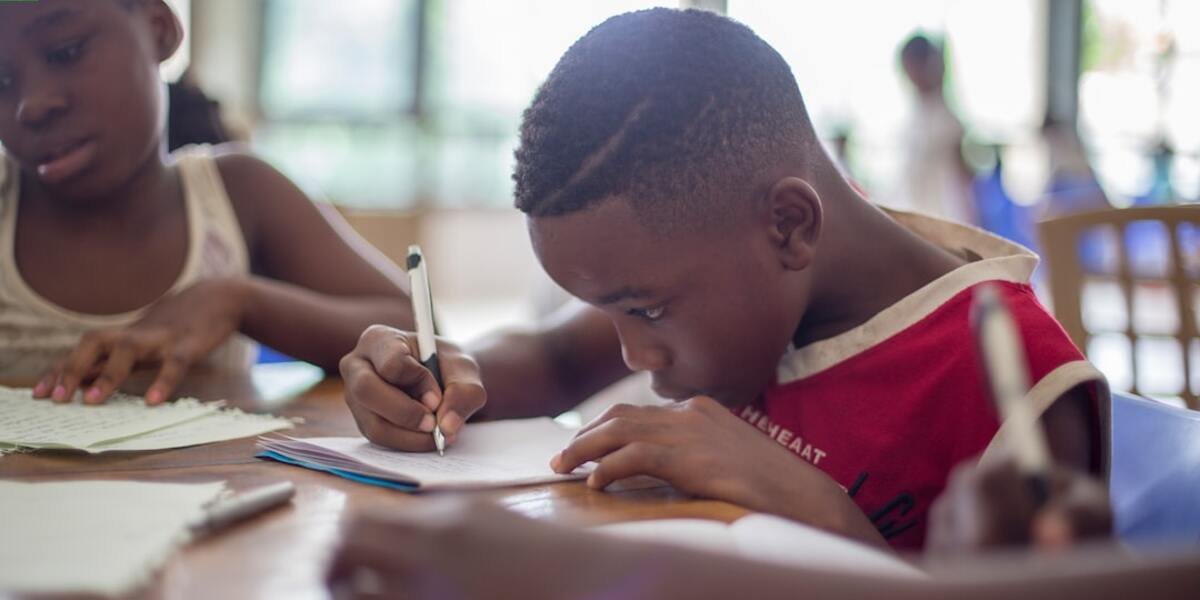What is a Special Education Teacher: Understanding their Role in Childhood Learning
Navigating the educational landscape can be challenging, especially when your child requires special considerations. This often gives rise to questions like “what is a Special Education Teacher?” A Special Education Teacher plays an integral role in creating tailored learning pathways for children with varied needs and abilities, ensuring they have access to quality education.
Understanding their role provides valuable insight into how these dedicated professionals improve outcomes not just acadically but also socially for children requiring specialized support. As we delve deeper into this crucial topic, we’ll explore the resources available and mechanisms put in place by special education teachers that inspire enriched student experiences and foster optimum development.
Did you know?
Did you know? Special education teachers are not just educators; they are also advocates. They must regularly liaise with parents, counselors, and other professionals to develop Individualized Education Programs (IEPs), ensuring each child’s unique needs are met.
Understanding the Role of Special Education Teachers
Special education teachers are vital figures in the landscape of childhood education. In 2023, their roles have expanded and evolved due to technology integration that aids learning outcomes for children with unique needs. These professionals undergo specialized training aimed at teaching students who experience challenges such as dyslexia, ADHD, autism spectrum disorder among other conditions.
Amidst changing educational trends, they shoulder a multi-faceted responsibility—adapting curriculum strategies using tech resources while ensuring a compassionate nurturing environment.
Technology has become an integral part of special education because it opens doors for personalized learning—something crucially needed by these young learners. Special educators deftly weave digital tools into their pedagogy like adaptive software applications designed specifically to meet distinct educational requirements of children with varying cognitive capabilities or physical disabilities; all contributing towards making studying equitable and inclusive.
Moreover, special educators connect parents and caregivers to essential support services outside the classroom through online platforms giving them access to vast resources aiding holistic development: from related speech therapy sessions or physiotherapy appointments available on-demand through video conferencing platforms—all under one roof digitally.
Overall understanding “what is a special education teacher” goes beyond conventional teachings spaces—it encompasses leveraging technological advances effectively in fostering enriched empowering learning experiences thus strongly resonating within today’s digitized world influencing how we perceive “special” in our classrooms now more than ever before.
Qualifications and Training Requirements
A special education teacher plays a vital role in shaping the academic journey of students with disabilities. Before discussing ‘what is a special education teacher’, let’s explore some essential qualifications and training requirements that one must fulfill to fit into this significant role.
To be eligible as a special educator, obtaining at least a bachelor’s degree in Special Education or related fields is usually required. Complementing it with certifications recognized nationally like Board Certification in Special Education (B.C.S.E.) adds more credibility to your profile for aspiring educators seeking specialized roles.
Next on the list comes internship experience. Many school districts prefer teachers who have hands-on teaching exposure through student-teaching internships during their undergraduate studies. These provide valuable practical knowledge regarding lesson planning, creating an inclusive classroom environment and facilitating individualized instruction.
In 2023, technology integration has become increasingly important; hence digital literacy skills are now considered integral for educators across all domains including those dealing with differently-abled students. In-depth understanding of assistive technologies ranging from text-to-speech software to adaptive hardware can help make learning accessible and engaging for these learners.
Day-to-Day Responsibilities in a Special Ed Classroom
Special education teachers don an incredibly important role in the realm of childhood education. To best understand “what is a special education teacher”, one must dive into their day-to-day responsibilities within the classroom.
One significant part of a Special Ed teacher’s daily routine revolves around planning and implementing lessons tailored for students with diverse needs. This endeavor often involves using technology to create engaging, accessible learning content that caters to individual student requirements. In 2023, digital tools such as speech recognition software or adaptive learning programs prove invaluable in helping these educators personalize instruction.
Beyond delivering lessons, another fundamental duty lies in continual assessment of every student’s progress and adjustment of teaching strategies accordingly. The use of data-tracking apps provides realtime insights into each learner’s development and potential areas where more support may be required.
Moreover, professional collaboration forms another integral responsibility on the shoulders of modern Special Ed teachers. These professionals frequently coordinate with general-education peers to integrate children with disabilities effectively into regular classrooms wherever feasible – harnessing cutting-edge inclusive technologies like virtual reality or communication aids helps bridge any existing gaps here.
Lastly but importantly, probably one key attribute anyone exploring ‘What is a special education teacher?’ might overlook – providing emotional support; fostering social skills amongst learners underpins an essential facet underpinning their job description too! With online platforms offering innovative ways for enhancing peer interactions even among remote learners; tech has indeed kicked up this element several notches higher!
Essential Resources for Effective Special Education Teaching
Special education teachers hold a unique place in the world of childhood education. With their specialized training, they are equipped to handle diverse learning abilities and help children with special needs reach their full potential. However, it is no easy task – being an effective special educator requires specific resources that aid both teaching and learning processes.
One such essential resource has emerged from the ongoing advancements in technology: Technology Integration. This concept refers to using various technological tools within educational environments to enhance teaching methods and reinforce students’ comprehension skills. In 2023, this approach became more crucial than ever before for special educators as it bridges significant gaps in traditional instruction methods.
For instance, tactile responses or visual aids can be leveraged via smart devices to accommodate individual student’s learning capacities — providing inclusivity over exclusivity, which becomes vital when educating children who learn differently from others.
Moreover degree of support available online for these professionals surges every passing year; there are numerous platforms now offering lesson plans specifically designed around assistive technologies , digital games tailored towards cognitive development adaptive e-books etc., all at click a button . As we continue along our path forward into 21st century technologically integrated curriculum will undoubtedly serve integral role empowering future generations regardless disability level aptitude spectrum – key element any successful classrooms atmosphere indeed .
Adaptive Teaching Materials and Tools
Whatever your role in the sphere of special education, understanding what a special education teacher is, their responsibilities and resources they engage with can enhance your effectiveness. As we dive deeper into 2023, technology continues to redefine teaching methods in our classrooms. This impact has been significantly noticed amongst Special Education teachers who are consistently seeking ways to integrate these adaptive technologies.
One of the primary tools that have revolutionized how lessons get delivered is adaptive learning software applications. These softwares personalized instructions based on each student’s unique abilities and needs – from students with mild learning disabilities to those with more significant impairments or disorders.
Digital whiteboards too add an interactive element making classrooms engaging for both educators and learners alike. They serve as an excellent tool enhancing collaboration while promoting inclusivity by allowing all children regardless of their ability levels access equal opportunities.
Then there’re speech recognition programs which come handy when dealing with youngsters struggling either expressively or receptively within spoken language parameters- this gives them confidence whilst encouraging independence!
Assistive listening devices also deserve mention here; widely used among students suffering hearing impairment conditions whereby sound amplification systems reduce background noise thus improving clarity heard by every individual child – providing equality rather than exclusiveness!
Online educational games make studying fun! For a generation growing up accustomed digital world around them, gamified learning approach makes academic content accessible enjoyable thereby increasing retention rates greatly!
Integrating Technology to Enhance Learning Experiences
Special education teachers hold a vital role in the development of inclusive and supportive learning environments for children with unique needs. However, if you’ve ever found yourself musing over “What is a special education teacher?” it’s important to know that this profession goes beyond teaching necessary academic skills.
In today’s digital era, one key aspect of being an effective special educator revolves around technology integration in education. Specifically integrating technology has proven instrumental in enhancing learning experiences—the core point we’ll explore further here.
When utilized effectively by educators who understand their value and application methods properly – these tools can lead straight towards improved engagement levels among students simply because they’re provided opportunities for active exploration instead passively absorbing information imparted by instructor during traditional classroom setting scenarios.
Additionally, different types of applications designed specifically for students with reading difficulties or those on the autism spectrum offer customized support — making educational content accessible despite challenges posed by specific disabilities—all thanks to advanced artificial intelligence (AI) algorithms powering them up!
Supporting Students with Disabilities: Strategies for Success
Supporting students with disabilities goes beyond just providing them access to mainstream education. It entails the utilization of well-tailored strategies that can make learning easier, enjoyable and more effective for these special needs children. As a cornerstone in this endeavor stands an exceptional figure – the Special Education Teacher.
A special education teacher boasts unique skills geared towards meeting these specific educational requirements. They are equipped not only with comprehensive knowledge on various disorders ranging from Autism to Dyslexia but also hone specialized teaching techniques designed for each situation. In today’s digital era marked by technological advancements, these innovative educators embrace technology as an essential tool in their arsenal.
Understanding how important gadgets have become as assistive tools, many teachers integrate it extensively into their curriculum and daily activities. For instance, they may use text-to-speech software to aid dyslexic kids or online games aimed at enhancing motor skills among autistic learners.
These professionals always remain open to innovation without losing sight of the importance of human connection in molding young minds effectively – especially those needing extra care and attention.
Individualized Education Program (IEP) Development and Execution
The role of a special education teacher in the creation and implementation of an Individualized Education Program (IEP) is indispensable. It’s not just about understanding what a special education teacher does, but also appreciating how they provide specialized instruction designed to meet the unique needs of each child.
An IEP embodies this customized approach – it serves as both a legal document highlighting students’ learning disabilities and educational plan detailing strategies for academic success. Formulating such detailed plans demands meticulous precision from educators like us.
In 2023, we have expanded our resources beyond traditional teaching aids. Integrating technology has become crucial in developing effective Individualized Education Programs (IEPs). Here’s how:
1- Comprehensive Assessment: Technology facilitates comprehensive assessments that help teachers understand each student better by using tools like online quizzes or interactive games coupled with data analysis software.
2- Customizable Learning Materials: From adaptive apps to online textbooks, these resounding advancements now allow teachers to modify content according to every student’s individual needs paving way towards personalized instructional methods.
3- Improved Communication & Collaboration: Teachers can leverage digital communication tools for consultation sessions amongst colleagues or interactions with parents making progress tracking more transparent than ever before.
Collaborative Efforts Between Educators, Parents, and Specialists
In bridging the gap of educational achievement, collaboration between educators, parents, and specialists plays a pivotal role. This holds particularly true in special education where each stakeholder’s contribution is essentially needed to navigate unique challenges faced by students with disabilities.
Understanding what a special educator does forms the foundation for effective cooperation. Acting as pillars in this intricate structure of learning support are specialized teachers who understand specific needs and tailor instruction accordingly; built on their prowess in diversity-inclusive teaching methods. They work directly with students while assisting regular classroom teachers too.
For instance, they may incorporate assistive technology into their lesson plans – tools designed to improve learning outcomes for children having difficulty mastering certain skills or concepts due to disability.
Technological integration had indeed revolutionized adaptive learning environments significantly since 2023 onwards when digital accessibility became even more sophisticated and user-friendly than before.
Parents’ involvement significantly boosts learners’ academic success. A child’s study perception is highly influenced by the home environment. By staying informed about the school curriculum, parents can:
- Adjust the household environment to support class lessons.
- Use audiobooks for auditory learners.
- Create tactile activities for children who learn better through touch.
Conclusion
In essence, understanding “what is a special education teacher” goes beyond their job title and encompasses the integral role they play in nurturing young minds. They are catalysts for change, advocates for inclusivity, and champions of individualized learning strategies that ensure every child’s educational needs get met. The value they bring to our children’s lives transcends classroom boundaries into an ever-unfolding journey of love, patience, resilience and continuous growth.
We hope this post has shed more light on what it means to be a special education teacher – these unsung heroes who work tirelessly behind the scenes making sure no child gets left behind acadically or emotionally! Feel free to delve deeper into topics regarding childhood education through other informative articles available around our website. From detailed parenting guides to educator support resources – there is much you can learn about cultivating thriving environments where youngsters thrive.
Remember: knowledge empowers us all!







